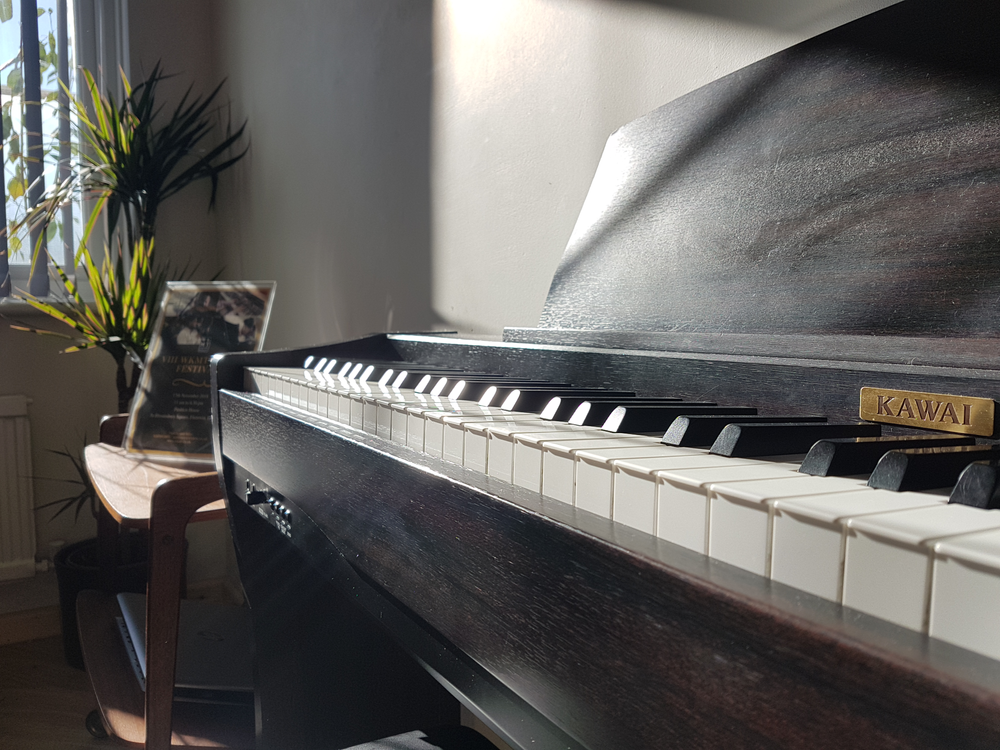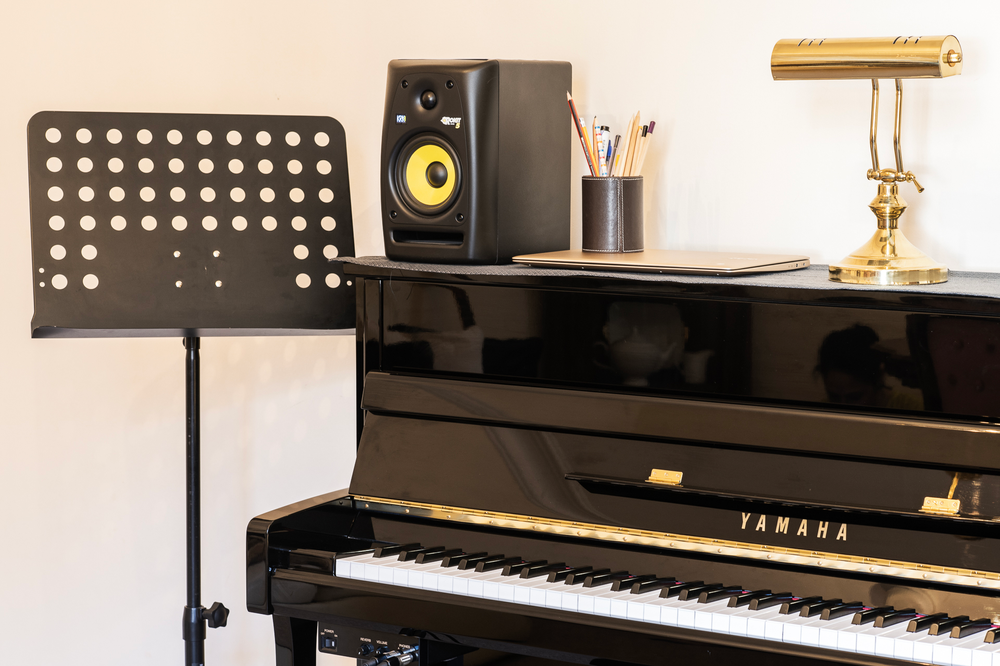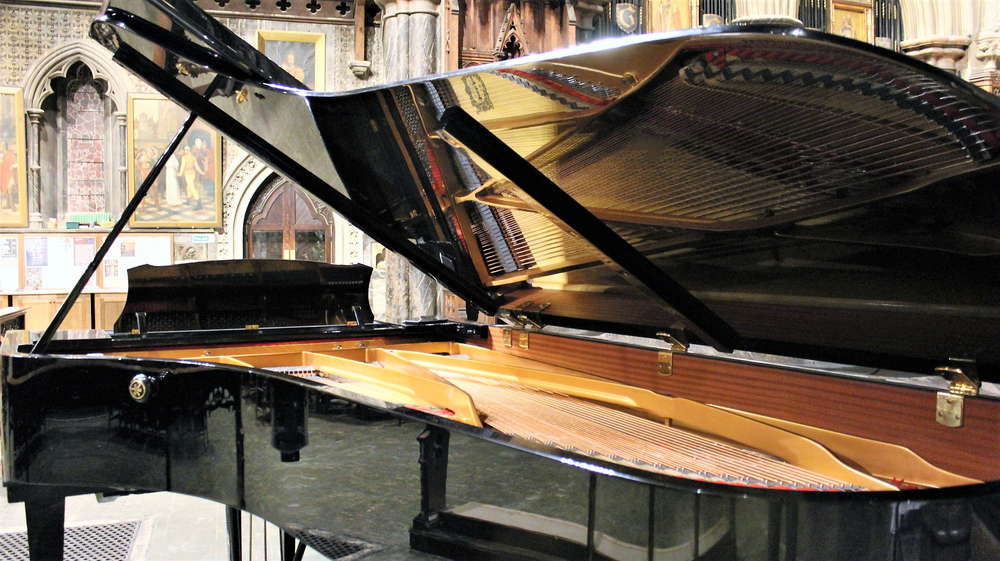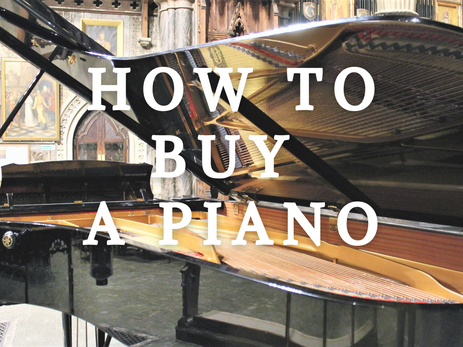Uncategorized
How To Buy A Piano
It’s always difficult choosing which piano you should get. Deciding if it’s better to get an Acoustic or a Digital, if the top brands are always the best brands… It’s even harder to know what you’re looking for, what makes a piano good?
Luckily, this article will guide you with the Do’s and Don’ts of piano buying.
DIGITAL PIANOS

Good keyboard for beginner
In order to choose a good quality digital piano, We should check the following characteristics:
ACTION
It is vital that you are aware of the key weights, functions and capabilities. You want what is known as weighted keys on your keyboard. This is what makes your keyboard feel like a regular piano. These weighted keys will make the response of the piano similar to an acoustic piano, you will be able to feel how quick/slow the keys react to your playing. This allows aspects like dynamics and articulation to sound with more precision, to get the best of the pianist’ excercise.
With keyboards that have non-weighted keys, it can be proven more difficult to differentiate loud and quiet, staccato and legato without them, or to get the full use of your crescendos. Of course, this also boils down to technique, it would be naive to think that just because you have a digital piano with weighted keys that you are automatically going to turn into a professional sounding pianist. Of course, the technique is the main factor in making your piano sound good, however, the weighted action will aid you further.
SOUND QUALITY
Digital pianos do not have hammer actions like the acoustic piano has to produce the sound, instead, they use recordings of pianos to make them sound similar. This is why it is important to buy a piano that has high-quality sound recordings so that it isn’t too dissimilar to the acoustic.
It would be also a great idea to note the positive of the digital piano where you can control the volume. If you are practising for many hours a day, or live with people who don’t necessarily appreciate the piano in the same way you do, being able to control the volume is a great property to have as you can:
1) Practise at all hours, day or night without distracting anyone,
2) It will prevent you from getting a headache from a constant loud sound that the piano may produce
3) If you get shy/overwhelmed with practising whilst other people are around, it allows you to be able to play at a volume where only you can hear. And when you are ready for a performance/ loud practice, you also have the ability to turn the volume right up and transport yourself to that concert hall.
POLYPHONY
This is where you are able to play multiple notes together without any of them cutting out.
This is so important when choosing a digital piano as some do not allow you to play chords as an acoustic piano does, which is a crucial property you must-have when playing.
There should be 88 keys on a good digital piano and if you can’t play four of them effectively at the same time, then that piano definitely is not the one for you.
For a greater understanding press this link for the digital vs acoustic piano article:
ACOUSTIC

We are going to be looking into specifically upright acoustic pianos because, although a grand piano is amazing to have and sounds beautiful, as a beginner, having a grand piano does not automatically turn you into a concert pianist. For beginners, upright pianos could be considered as a “middle step” between a digital choice and a grand piano. It is important to develop your technique without a grand piano as you can still sound just as good without one.
SOUND
First of all, you will need to think about what you would like your piano to sound like.
Do you want it sounding warm? Mellow? Full? Old?
There are so many different sounding pianos, it is important to test them all out and see which suits your style best.
CONSISTENCY WITHIN THE KEYS
As well as choosing the sound that you like, it is important to look at the consistency within the keys. For example, if you have a strong bass-heavy piano, it is important that the sound is just as strong in the high treble of the piano, this is also the case for the keys in the middle.
When playing a scale you definitely do not want certain keys in the scale sounding weaker than the others, you want everything to be consistently stable within your piano.
QUALITY OF THE KEYS
As well as the sound it is important to look at the quality of the keys. This consists of making sure that none of them is broken, including any cracks, marks or damages that stop the sound from working once the key is pressed. But also it is about the weight of the keys.
You want the responsiveness of the piano to be one of your main priorities. When pressing a key, the responsiveness should be pretty instantaneous with little to no hesitation in the movement of the keys. You also want the correct balance of key weight, you don’t want the key to be too heavy where it is tiring to practise, but on the other hand, you also don’t want a key to be too light that you feel like you are playing on-air and can’t get the precision you need to bring out the expressiveness and uniqueness of the piece. So finding a happy medium is key to your success.
INSIDE OF THE PIANO
But it’s not just all about the outside, the inside of the piano counts too.
If you’re not a piano technician (which many of us aren’t ) then knowing what to look at on the inside of your piano is pretty tricky to do. But it is important to take a look inside and make sure that the hammers and strings aren’t worn out and that the felts aren’t too dusty.
The inside is what creates the sound of the piano, so if it’s looking a bit tired and old, the likelihood is that you may have to have some work on it sooner than you would like which obviously when buying a piano is not ideal. It is all about making sure everything works as it should.
It is important that you don’t go for a piano purely because you know the brand is respected and it looks aesthetically pleasing.
A piano should be personal to you and as long as it makes you feel good whilst playing that’s all that matters. Sometimes the bigger brands may not be as amazing as you originally thought they would be. Testing pianos is all about open-mindedness, as long as you know what works best for you, choosing your perfect piano should be a fun experience.
GRAND PIANOS

Everyone loves the look of a Grand piano.
Having a Steinway concert grand in your home is what most piano enthusiasts dream of having. But for beginners, it’s best an upright piano to start with than to invest in a grand piano.
These pianos carry a huge sound which is gorgeous for performing virtuoso pieces but when you’re doing your practice at home, they aren’t the most practical piano you can get.
Remember it’s not all about what you think is the best of the best, it’s about what will personally suit you.
If you have a very high interest in grand pianos, read our articles about the most expensive grand pianos in the world, and what brand to choose between Yamaha and Steinway.
#buypianos #howtobuyapiano #bestbeginnerpiano #bestbeginnerdigitalpiano #bestpianoforbeginners

